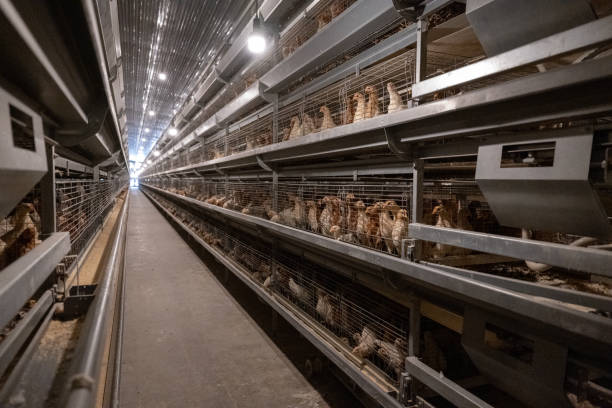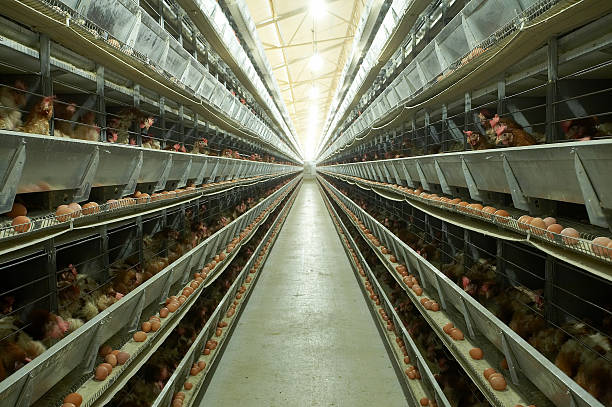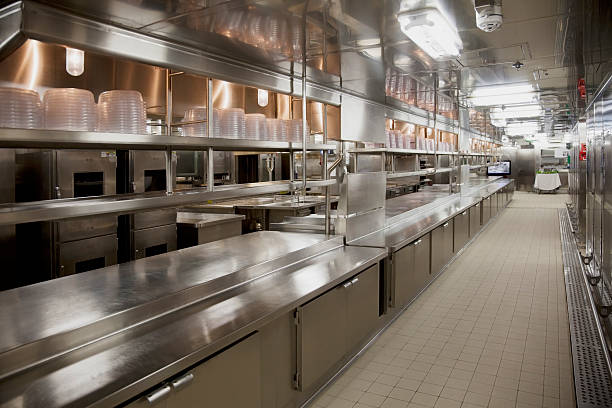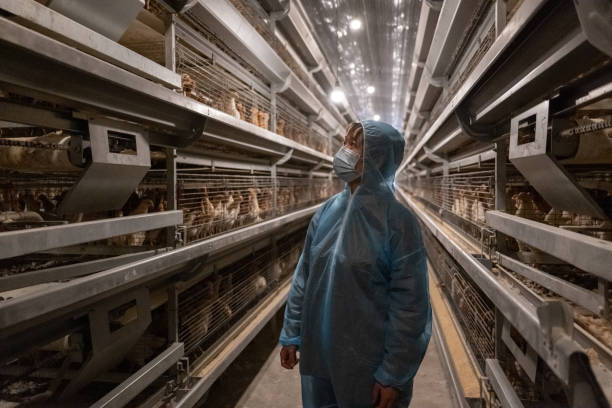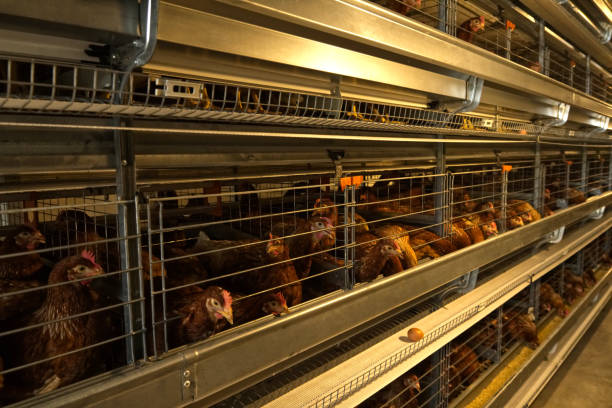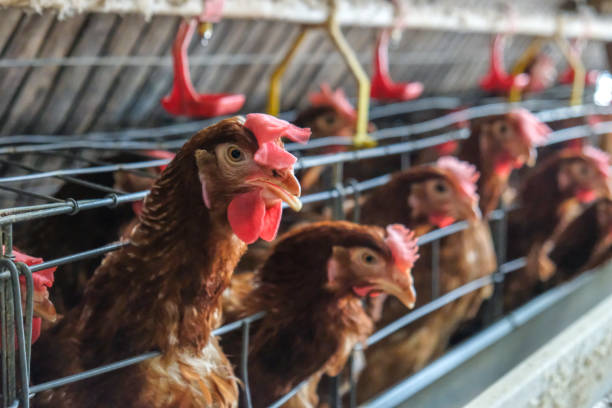Nigeria Transport Of Layer Farming Cages To Raising 30000 Chickens
The poultry industry in Nigeria has witnessed significant expansion due to increasing demand for eggs. As the population grows, so does the need for more efficient and scalable poultry farming methods. Layer farming, particularly the use of layer farming cages for 30,000 chickens, is key to meeting this demand. This article outlines the role of layer farming cages in Nigeria’s poultry sector, the logistical challenges involved in transporting them, and how these systems contribute to the growth of Nigeria’s agricultural industry.
1. The Importance of Layer Farming Cages for 30,000 Chickens
- Optimizing Space: Layer farming cages are designed to house large numbers of chickens in compact spaces, allowing farmers to raise more birds without taking up excessive land.
- Increased Productivity: These cages often come with automated systems for feeding, watering, and egg collection, improving efficiency and reducing the need for manual labor.
- Meeting Large-Scale Demand: For farmers raising 30,000 chickens or more, layer farming cages are crucial for managing such large populations while maintaining optimal health and egg production rates.
- Healthier Chickens and Higher Egg Yield: The controlled environment in these cages can help minimize disease transmission and stress, leading to healthier chickens and higher-quality eggs.
2. Transporting Chicken Layer Cages in Nigeria: Challenges and Logistics
- Transportation Difficulties: Transporting chicken layer cages in Nigeria can be challenging due to the size and bulkiness of the cages. These cages often require special handling to ensure they remain intact during transit.
- Infrastructure Challenges: Nigeria’s roads, especially in rural areas, can be poorly maintained, causing delays and sometimes damaging the cages during transport.
- Increased Costs: The need to transport cages over long distances, often from manufacturers in other regions or countries, adds significant logistical costs to the farming process.
- Solutions to Improve Transportation: To mitigate these challenges, some Nigerian poultry farms are exploring better packaging techniques, more efficient routes, and strategic partnerships with logistics providers to ensure safe and timely delivery of the cages.
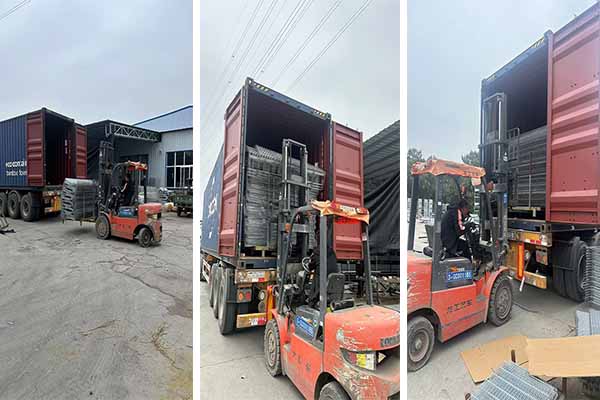
Nigeria Transport Of Layer Farming Cages To Raising 30000 Chickens
3. The Role of Chicken Layer Cages in Nigeria’s Poultry Farming Expansion
- Supporting Large-Scale Production: Chicken layer cages are essential for large-scale poultry farming, especially for farms that want to raise tens of thousands of birds. They provide a structured environment that maximizes egg production while conserving space.
- Sustainability and Hygiene: The design of these cages reduces waste, optimizes resource use, and improves hygiene, which is crucial for maintaining healthy poultry and producing high-quality eggs.
- Meeting Rising Egg Demand: With Nigeria’s growing population, there is a continual rise in the demand for eggs. The use of layer farming cages allows farmers to meet this demand while ensuring high production levels.
- Government Support for Poultry Growth: The Nigerian government has introduced initiatives to help farmers, such as providing subsidies and facilitating infrastructure improvements, which support the expansion of large-scale poultry farming.
4. The Future of Layer Farming in Nigeria
- Technological Advancements: The future of poultry farming in Nigeria will likely involve increased automation, with layer farming cages becoming more technologically advanced, featuring systems like climate control, automated feeding, and data collection.
- Increased Investment: With the Nigerian government and private sector focusing on agricultural growth, more investment will likely flow into the poultry industry, including in the transport and logistics of chicken layer cages.
- Enhanced Supply Chains: As logistics solutions improve, transporting layer farming cages to farms will become more efficient, making large-scale poultry farming even more viable in Nigeria.
- Sustainability and Innovation: Future layer farming cages will likely incorporate even more sustainable practices, with designs that reduce environmental impact and improve animal welfare.
5. Conclusion
The use of layer farming cages for 30,000 chickens is transforming the poultry industry in Nigeria. These cages offer a highly efficient way to manage large-scale egg production while maintaining high standards of animal health and productivity. However, transporting chicken layer cages to remote or rural areas presents logistical challenges that need to be addressed for smoother operations. By investing in infrastructure, logistics, and technological innovations, Nigeria can overcome these hurdles and continue its growth as a major player in the global poultry industry. The future of layer farming in Nigeria looks bright, with continued advancements in both farming techniques and logistical solutions.
6. Get in Touch for More Information
If you are a poultry farmer looking to scale your operation and enhance productivity with layer farming cages in Nigeria, we are here to help. Our team can provide you with all the details you need about the most efficient cage systems, transportation solutions, and best practices for managing large-scale poultry farming. Whether you’re interested in upgrading your current setup or starting a new farm, don’t hesitate to reach out. Leave us a message today to learn more about how we can support your farming success and help you maximize your egg production. Let’s work together to take your poultry business to the next level!



